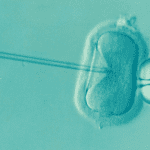
In recent weeks, there have been a few stories about sexual assault on Catholic college campuses. The fact that there are sexual assaults doesn’t surprise me. It’s not that I think there’s necessarily something wrong with the dating culture on these campuses: I just know our human nature is fallen.
I would even suspect that the strong spiritual presence of such schools reduces the incidence of sexual assault. Nonetheless, assuming the spiritual climate eliminates sexual assault is naïveté. I would hope that every university has strong policies to discourage sexual assault, and to deal with it when it comes up, maintaining justice for both parties.
I’m not qualified to be a judge in most of the cases in that debate as we mainly have accusations. Instead, I want to offer a reflection on our own blissful naïveté towards immorality at times. How I broke out of it, what areas we can be naïve in, and why we cannot remain naïve.
3 Experiences Destroying My Naïveté
I used to be a little more naïve but three experiences changed that. Don’t worry, these aren’t about confession.
Youth Supervision
A few years back, we were talking about the rules for parental supervision of overnight youth events. One of the other men with me mentioned how his brother got into huge legal trouble due to his naïveté. The brother had been a Boy Scout leader, and after moving, he quickly became the troop leader at his parish. For an end of year event, the parish had a tradition that the dads slept in a hotel, having one dad and several Scouts per room. He did not change it to follow a 2-adult rule. He was awakened in the middle the night with one of the innocent Scouts stating the dad in his room had touched him inappropriately. This other dad is a predator who should never have been allowed such an opportunity. The troop leader now faces legal issues alone as every parent organization rightly says he was negligent in allowing such sleeping arrangements.
Mischievious High Schoolers
Another case has to do with me being the chaplain at a private Catholic school for a year. A number of the older students shoplifted from the local supermarket over the lunch hour. It appears they did it just for the thrill of shoplifting. They had plenty of money but just walked out with a gallon of milk and two dozen eggs without paying. I couldn’t understand why these kids did it as it wasn’t even stealing soda or candy. It reminded me of the story of the pear tree which St Augustine uses to reflect on why humans do evil, as he seems to have no justification. He concludes in a way that likely applies to such students: “But as my enjoyment was not in those pears, it was in the crime itself, which the company of my fellow-sinners produced.”
Fr Marcial Maciel
The third was the case of Fr Marcial Maciel. Obviously, as a member of the Legion this hit me hard. I knew there had been rumors when I joined in 2001 but it seemed like a he-said-she-said situation and he appeared to have a strong moral character, so I believed him. Even after the decree in 2006 removing him from ministry, I didn’t see any clear evidence he lied. The first nick in that armor happened in 2009 with the revelation of his daughter. Within minutes, I realized that many of the other things were probably true as the he-said-she-said bent the other way. I had thought of him as a model priest but I had to come face to face with my own misconceptions.
There are also stories online about good Catholics not believing that others who seemed to be good Catholics could do something so horrible. I don’t think the people who don’t believe are always malicious: often they are just naïve.
These experiences leave me with little naïveté about how anyone can fall morally.
We Cannot Remain Naïve
So many are like the Pharisees, who Jesus described, “You are like whitewashed tombs, which outwardly appear beautiful, but within they are full of dead men’s bones and all uncleanness.” (Matthew 23:27)
But it isn’t just the big stuff: I see naïveté in new people working in youth ministry. If you assume that everyone is angelic as most of us remember ourselves at 12, you will likely fail. It isn’t that these kids are bad but if they’re bored, they’ll make a commotion or play games that take away from the experience we want to give them. We often make an idealized version of our own past to comfort ourselves but this can create a cycle of naïveté.
I’m sure Catholic teachers have the experience of often seemingly good kids getting caught cheating in school. Every mom knows that kids will try to get their siblings in trouble whether for legitimate transgressions or breathing on them.
Obviously, we can be naïve about much bigger things as mentioned above like sexual assault and domestic violence.
Consequences of Naïveté or a Wide-Eyed Approach
God created us good, but we fall with original sin. Jesus redeemed us but we still have the effects of original sin. We need to be aware that just because someone is striving to be a good Catholic – or at least appearing to do so – that they can never fall.
Solzhenitsyn understood this reality:
The line separating good and evil passes not through states, nor between classes, nor between political parties either – but right through every human heart – and through all human hearts. This line shifts. Inside us, it oscillates with the years.
We all know we need to be vigilant against our own sins – if you forgot, just recall your last confession. And we all know others are capable of great sin. It isn’t that we are going to assume the worst for each person but that we are going to “trust, but verify,” and set up systems to respond when a claim of immorality comes up. Leading people along a path of virtue can reduce the prevalence of sins but to imagine any environment is sin-free is unrealistic.
Naïveté is problematic, as it tends to move us to inaction. Such inaction prevents those under our care from growing spiritually. If we let things go, eventually things get worse.
We cannot be naïve but must be always vigilant against our own sins, and always aware that others can sin. We should lead people on right paths but not assume they’re all angels.
EDIT: I changed the wording of the story about the poor sleeping arrangements for Scouts to make it clearer who was naïve.












